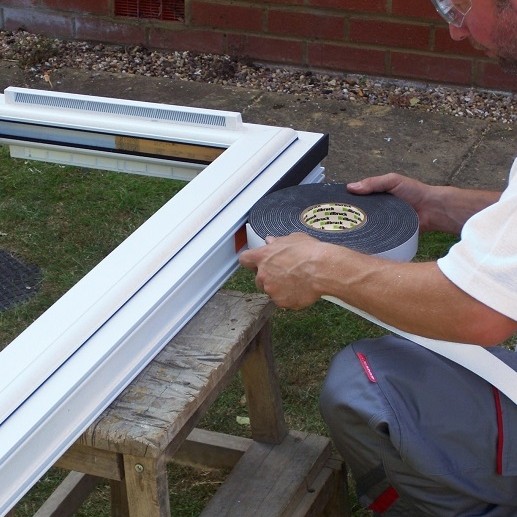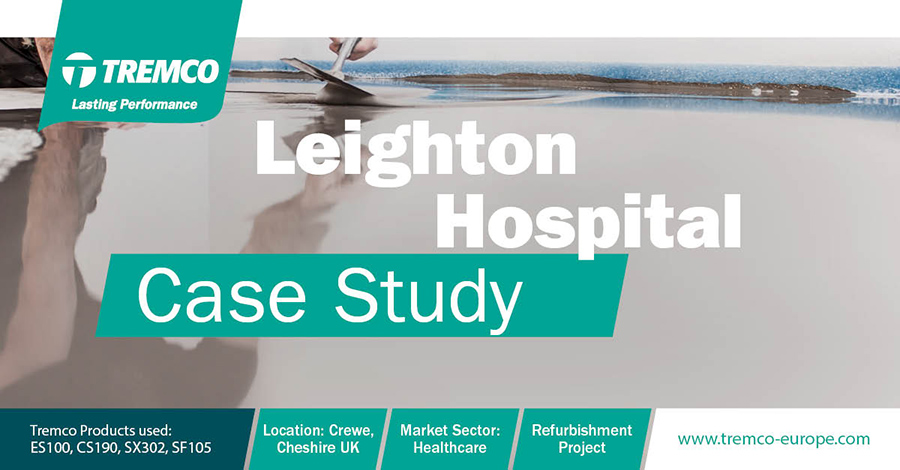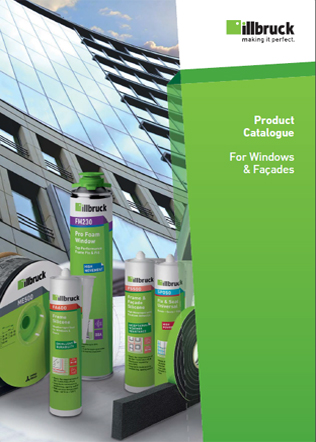
In the domestic replacement window market, the preferred choice of sealant for the perimeter sealing of windows has long since been established as silicone and, provided the appropriate type and quality is used, this can provide a durable seal which meets most expectations when correctly applied.
What happens though if a poor quality or wrong grade is chosen and perhaps coupled with an inferior application and an unsightly bead which draws attention to the edge of the window for the wrong reasons?
Achieving a neat bead is often difficult, especially when the joint width varies and the construction reveal is irregular. And then there’s the vagaries of the weather – sealants should not be applied to damp substrates or ones that may have experienced rainfall prior to curing.
Perhaps then it is somewhat surprising that silicones (and occasionally other ‘wet’ sealants) have proved to be so popular for such a long time given the above issues.
"It is a fact that there has been a very valid alternative for around twenty years and one which has proven very popular in the commercial market; particularly when considering high performance windows, typically wood/aluminium composites," said Steve Wild, Business Development Manager for Windows and Facades.
"Whilst in this segment, those associated with the specification and use of associated materials have considered the high performance, durability and BBA certification provided by some impregnated tapes eminently suitable for providing a weather tight seal, in the domestic market, it is a (somewhat) sad fact that very often, literally the only criteria considered when selecting the sealing product is price. It is well known that buyers and/or business owners will make such decisions based on saving a few pence on a cartridge. This policy is even more ill-founded when the windows themselves are increasing in quality and therefore ‘deserve’ to be sealed more appropriately.
"The domestic window market is always receptive to new ideas despite what is often a deep-seated reluctance to change and an obsession with price. Any analysis of the window energy-rating scheme will demonstrate that, if the concept is right, companies will invest in development and marketing in an effort to gain a competitive edge. There is every reason, therefore, to consider the benefits of alternative methods of sealing the windows in order to enhance the excellent properties of the window.
"Impregnated tapes are well specified and understood in the commercial window market and the many benefits, including thermal insulation of the joint, are becoming accepted in the domestic replacement segment. Any product’s market share will grow with increasing awareness and, as more suppliers promote such materials, and word to mouth endorsements follow, more installers are reacting positively.
"Social media is helping with this and ‘B2B’ recommendations are increasing awareness. Before the end of the year, the revised ‘BS8213-4 Code of practice for survey & installation of windows & external door sets’ will be launched and recommendations for sealing windows and doors will include impregnated foam tapes in addition to conventional ‘wet’ sealants. This will inform installers of alternative methods of perimeter sealing and should provide comfort for building or fenestration inspectors that such products are recognised as being appropriate.
"A typical installer has the choice to carry on regardless or consider a more innovative approach and promote the benefits of an alternative solution which over a long period of time has been proven to work and offer genuine enhancement to both installation practice and aesthetics."











